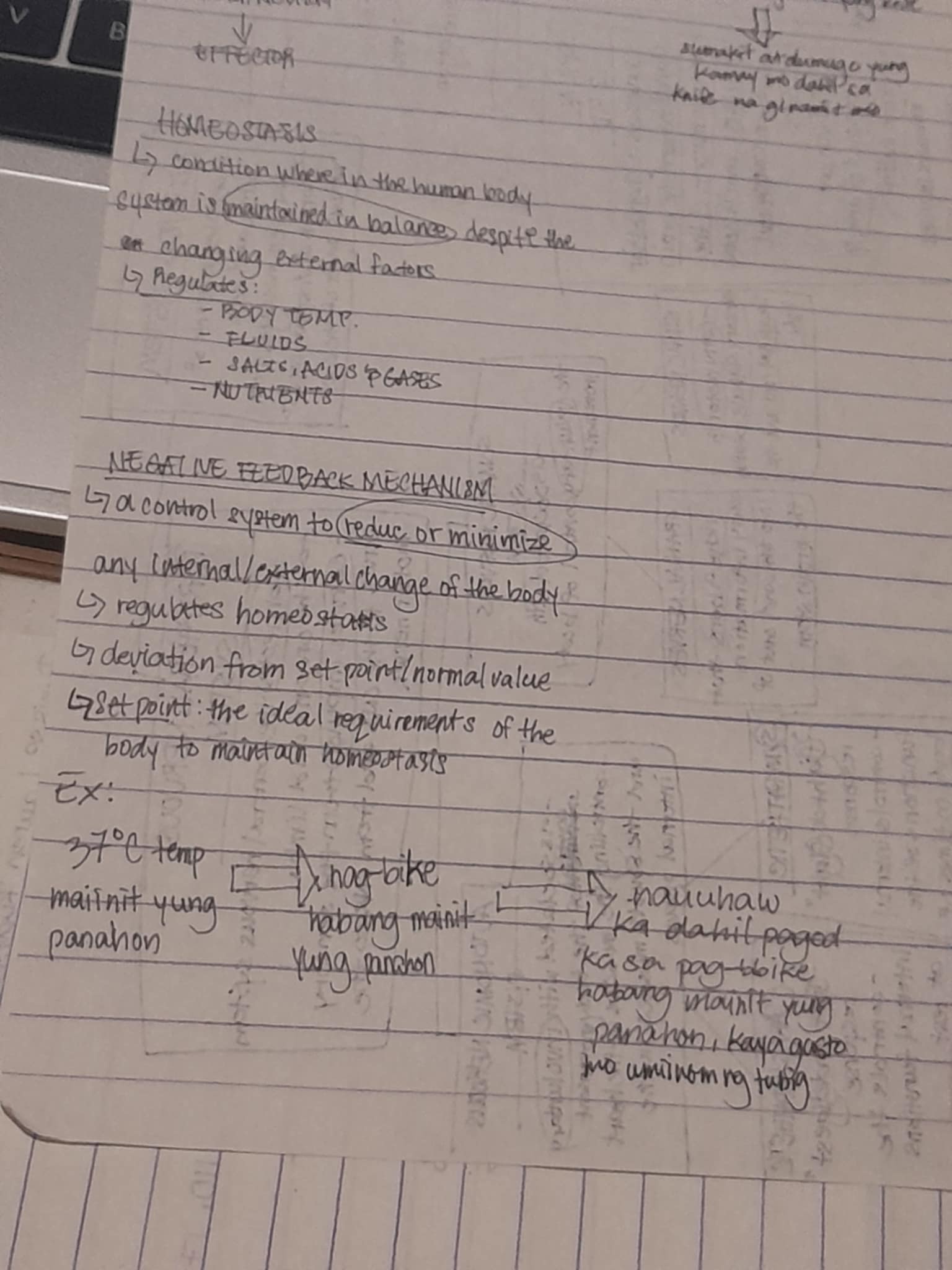What is homeostasis and how does negative feedback mechanism work in the human body?

Understand the Problem
The content explains the concept of homeostasis in the human body and discusses negative feedback mechanisms that maintain it. It highlights the body's regulation of temperature, fluids, and nutrients, and provides an example of how the body responds to temperature changes.
Answer
Homeostasis maintains body stability; negative feedback counteracts changes.
Homeostasis is the process by which the human body maintains a stable internal environment despite changes in external conditions. Negative feedback mechanisms help regulate this by opposing changes, such as reducing body temperature when it rises above normal.
Answer for screen readers
Homeostasis is the process by which the human body maintains a stable internal environment despite changes in external conditions. Negative feedback mechanisms help regulate this by opposing changes, such as reducing body temperature when it rises above normal.
More Information
Negative feedback loops are essential for processes like temperature regulation and blood sugar control, ensuring body functions remain within a healthy range.
Tips
Confusing negative feedback (stabilizing) with positive feedback (amplifying) is common. Focus on how negative feedback aims to return conditions to a set point.
Sources
- Homeostasis – Anatomy & Physiology - UH Pressbooks - pressbooks-dev.oer.hawaii.edu
- Homeostasis and Feedback Loops | Anatomy and Physiology I - courses.lumenlearning.com
AI-generated content may contain errors. Please verify critical information